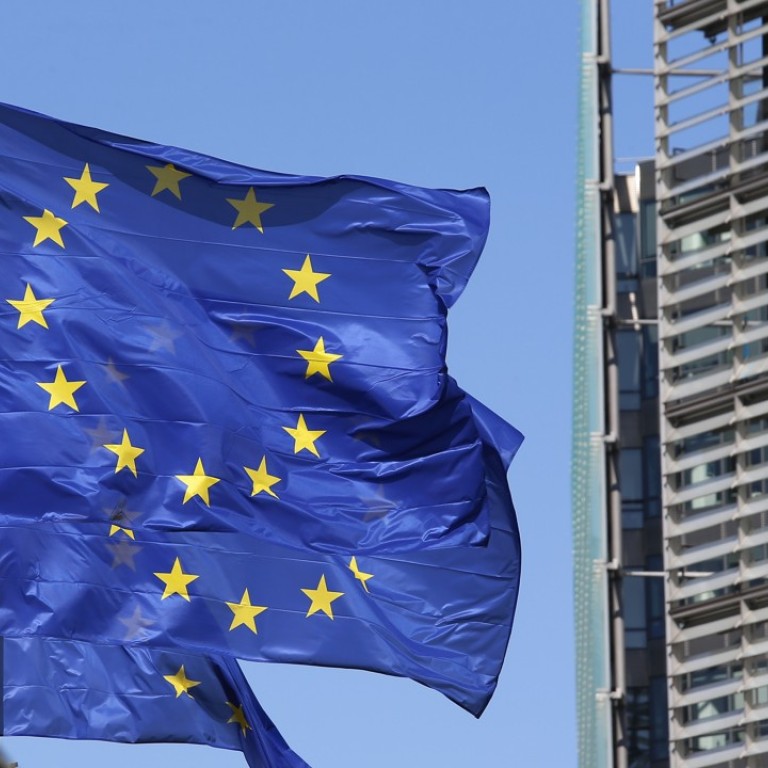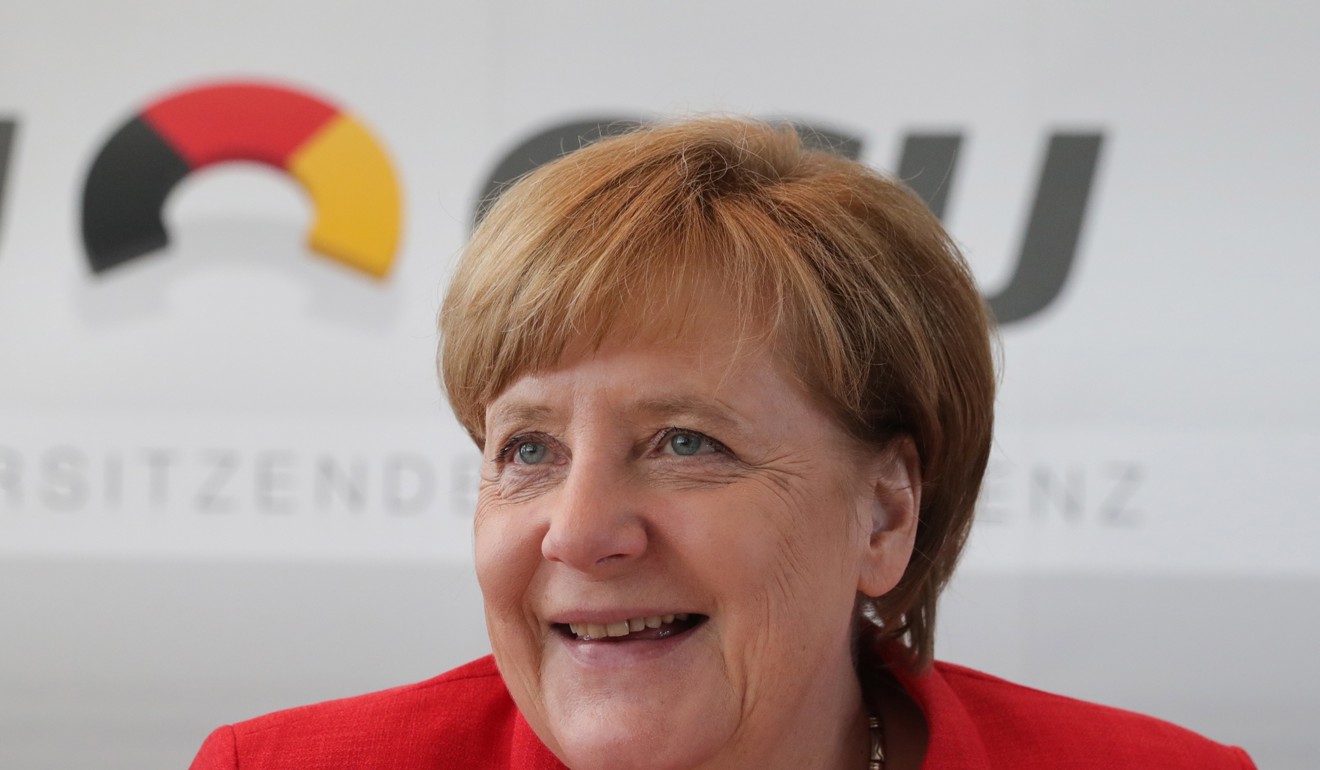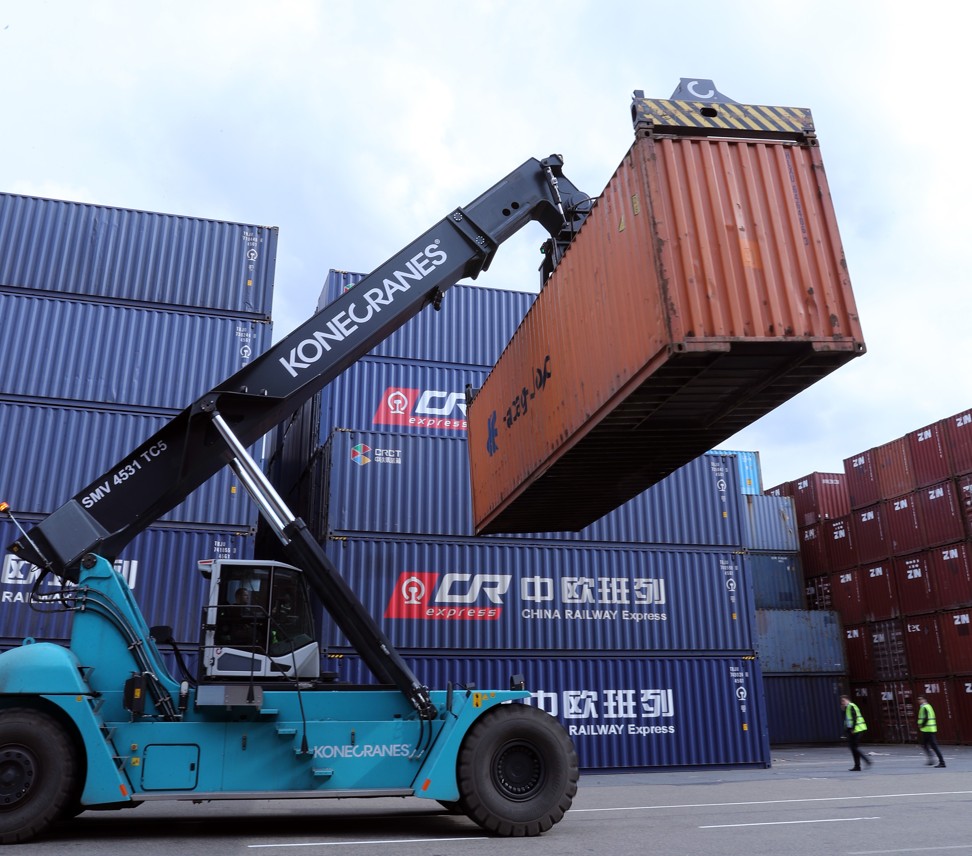
Is the EU trying to derail China’s European ambitions with its new connectivity plan for Asia?
Beijing has been making inroads into Europe with its ‘Belt and Road Initiative’ but Brussels is working on an alternative
Concerns have been growing in Brussels over the perceived lack of transparency surrounding Beijing’s plan – a pet project of Chinese President Xi Jinping – which some have argued it is using to expand its geopolitical influence in the region.
The issue is likely to be one of the key agenda items for German Chancellor Angela Merkel, who is expected to visit China later this month.
EU envoys hit out at China’s ‘unfair’ Belt and Road plans
The European Commission released a document in February soliciting opinion on the Europe-Asia Connectivity plan, which is expected to be adopted by the commission in July, and by the European Council in October. It will be presented at the 12th Asia-Europe (ASEM) Summit in Brussels later the same month.
The plan is seen as part of a shift within the EU on dealing with foreign policy issues, including China, with a more unified and firmer voice. Just last month, 27 of 28 EU ambassadors in Beijing – Hungary’s representative being the exception – reportedly signed a document denouncing the belt and road plan for hampering free trade and giving an unfair advantage to Chinese companies.
“Belt and Road Initiative” countries will benefit most in event of any China-US ‘trade war’
Frans-Paul van der Putten, a senior research fellow at the Netherlands Institute of International Relations, said the release of the EU’s plan was intended to make clear that the Chinese initiative was not the only option for inter-regional development.
“The EU is unhappy that many countries in Asia and eastern Europe seem to regard China as the main source of investment in greater regional integration, whereas in the view of the EU it is itself a much larger actor in this regard,” he said.

A source from the German foreign ministry said that “the ‘Belt and Road Initiative’ needs to be in line with international standards regarding the environment or labour [for example]”, adding that there were concerns over the lack of a fair and transparent process for public procurement.
Belt and road is no 'win-win' for China's partners: US study
The Europe-Asia plan aimed to produce a “coherent approach” to Europe’s relations with Asia, on issues ranging from security to trade to cultural exchanges, the person said.
As well as concerns at the national level that China’s growing influence in southern and eastern parts of Europe – through the development of energy and infrastructure projects – has weakened unity among EU members on issues critical to China, many European companies have complained of being shut out of projects happening in their region under the belt and road plan.
Is China’s belt and road plan about to run out of money?
The European International Contractors, a construction industry trade association based in Germany, said the Chinese initiative consistently left little room for local contractors to get involved and praised the EU’s efforts to develop an alternative connectivity plan.
According to Bernt Berger, head of the Asia Programme at the German Council on Foreign Relations, while the EU plan would provide a way for major European economies to diversify trade ties that had become too dependent on China, it could also be complimentary to the “Belt and Road Initiative”.
US defence official accuses China of ‘predatory economic activities’
“Most people in Berlin think the belt and road is a good idea,” he said. “Many German companies are already involved in belt and road projects.”
Most people in Berlin think the belt and road is a good idea
Despite the general optimism about the EU plan, Garima Mohan, from the Global Public Policy Institute in Berlin, said it was still only in the drafting phase and that EU officials would have to iron out the financial details before it could be implemented.
Chinese firms find Belt and Road projects worth the risk
“Major debates are sure to arise when it comes to discussing how member states might contribute financially to the connectivity plan after it is adopted by the European Council in October,” she said.
Even more sensitive discussions, on security issues, for instance, might also be necessary if and when Europe sought to align the connectivity plan with India, Australia, the US and Japan, she said.


